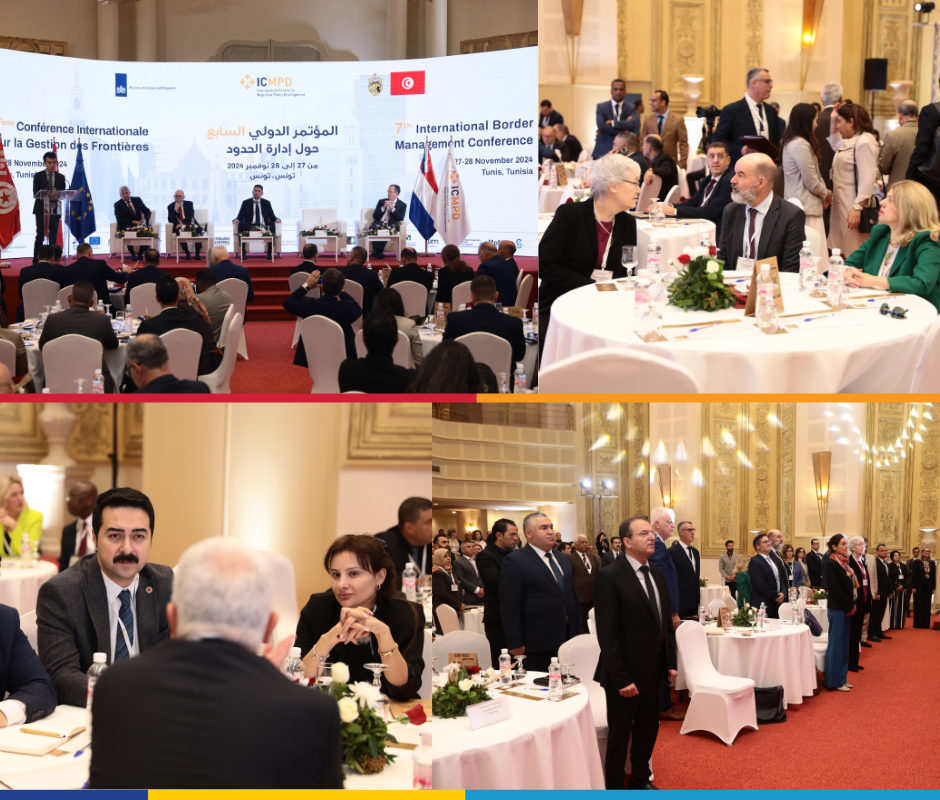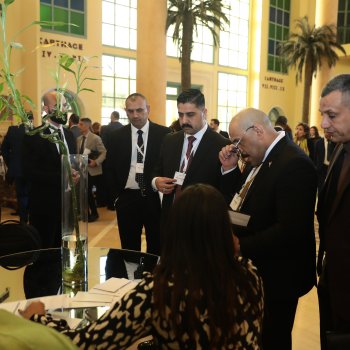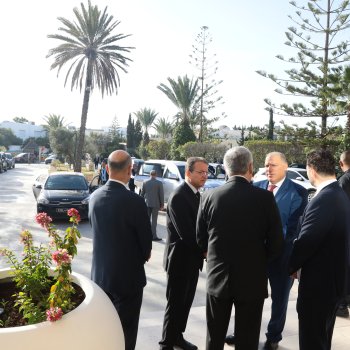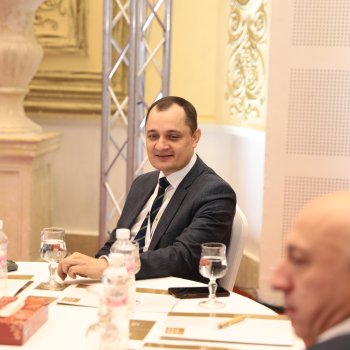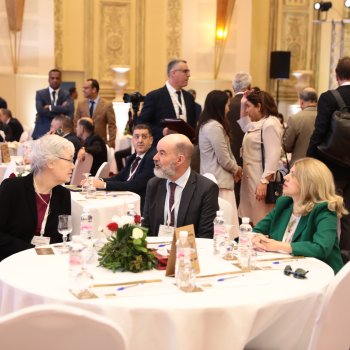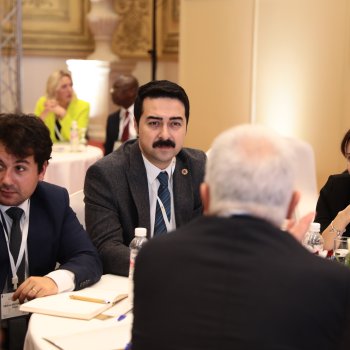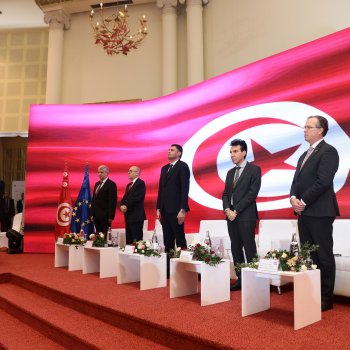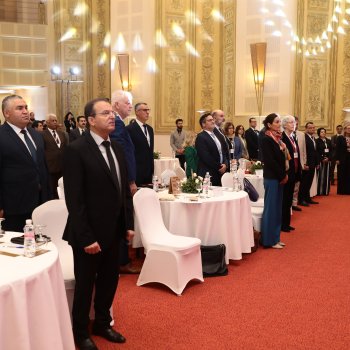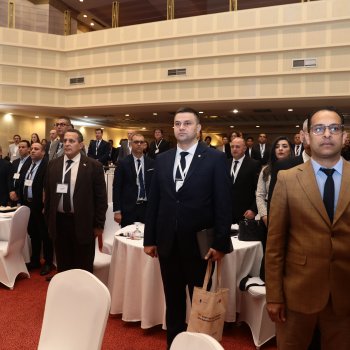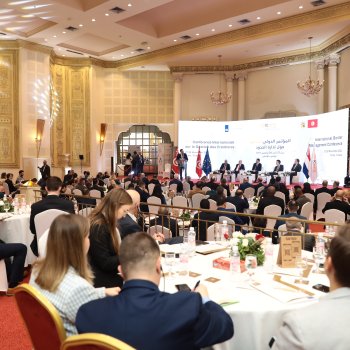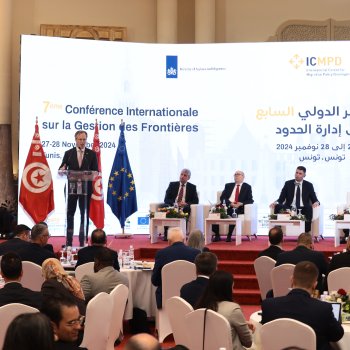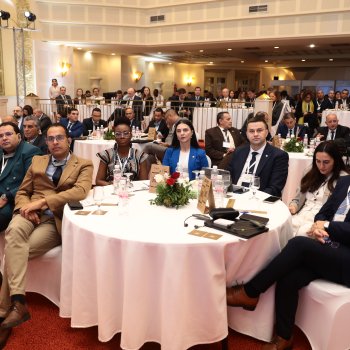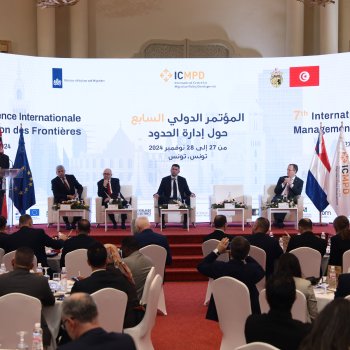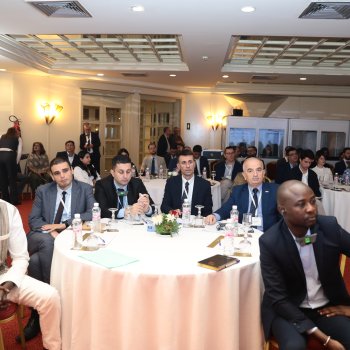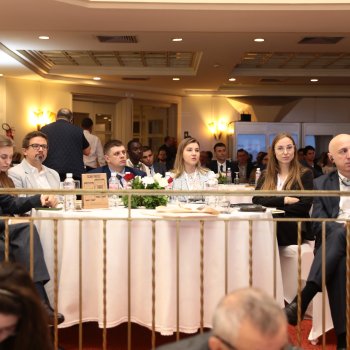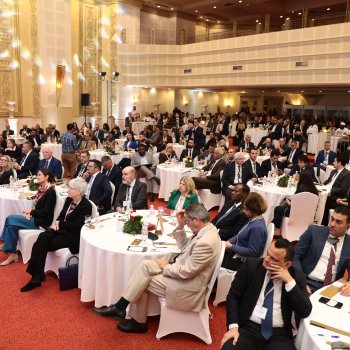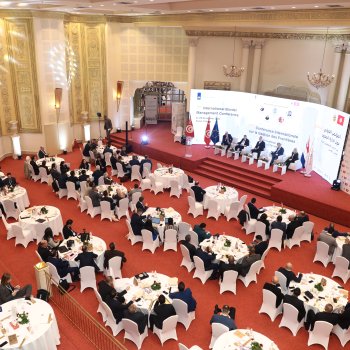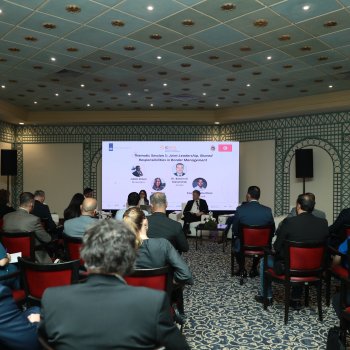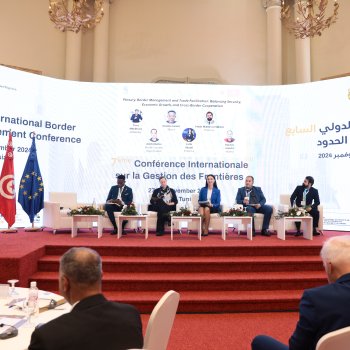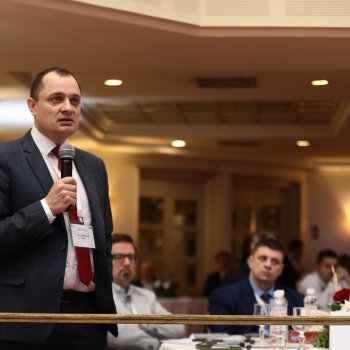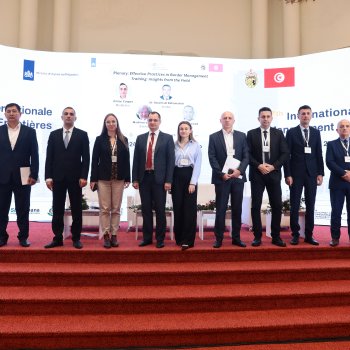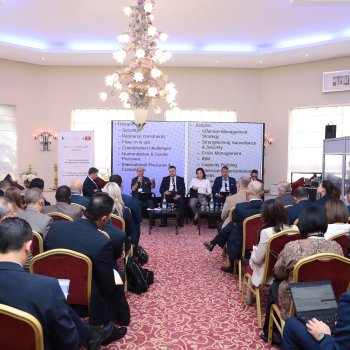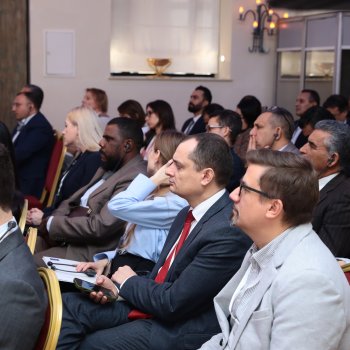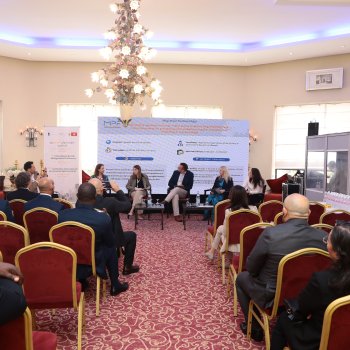On 27 and 28 November 2024 in Tunis, the International Centre for Migration Policy Development (ICMPD) organized the 7th International Border Management Conference (IBMC) under the auspices of the Ministry of Interior of the Republic of Tunisia.
The Conference brought together over 260 participants from 47 countries, including policymakers and practitioner in border governance, representatives from European institutions, international organizations, and academia. Organized and supported by a number of projects and actions implemented by ICMPD, including the Prague Process, the IBMC fostered networking, knowledge sharing, and dialogue on pressing challenges and latest trends in border governance. The representatives of eight Prague Process states expressed their appreciation of this opportunity for learning, networking and collaboration, which aligns with the Prague Process Action Plan 2023-2027.
The Conference built upon the principle of "joint leadership and shared responsibility", highlighting that effective border governance rests on four key pillars:
- Professionalization: Skilled and trained personnel are crucial for secure and efficient border management.
- Modernization: Investments in advanced, state-of-the-art technology enhance operational capabilities.
- Robust Governance Frameworks: Collaborative systems enable seamless cooperation among stakeholders.
- Communication: Transparent and consistent messaging builds trust and counters misinformation.
DG HOME emphasized that evolving global dynamics demand robust partnerships in migration management, calling for better integration of political dialogues with programming efforts to strengthen joint leadership, shared responsibility, and close collaboration. Ministry of Asylum and Migration of the Netherlands underscored the shared challenges countries face in managing migration and stressed that no nation can address these issues alone. The country highlighted the importance of cooperation in tackling irregular migration and protecting those in need, with the IBM framework serving as a central component of the discussion.
The Republic of Moldova demonstrated the practical benefits of partnerships as essential to effective crisis management and planning. The discussions highlighted best practices such as Moldova's recent establishment of joint border control points with Ukraine and Romania, showcasing effective cross-border collaboration to manage migration flows in crisis situations and enhance security.
Thematic sessions explored diverse topics, from communication strategies in migration to the role of advanced technologies such as biometrics and AI in modernizing border security. Communication experts underscored the importance of clear objectives, audience-focused messaging, and precise, non-politicized language in shaping effective migration narratives, building trust, and fostering balanced communication. Building on this, participants highlighted the need for clear communication, tailored training programs, and stronger cooperation across local, national, and regional levels to address the complexities of migration effectively.
The Conference concluded with a clear mandate: strengthen international cooperation, leverage technology, prioritize human-centered governance and promote IBM principles to address challenges effectively.

